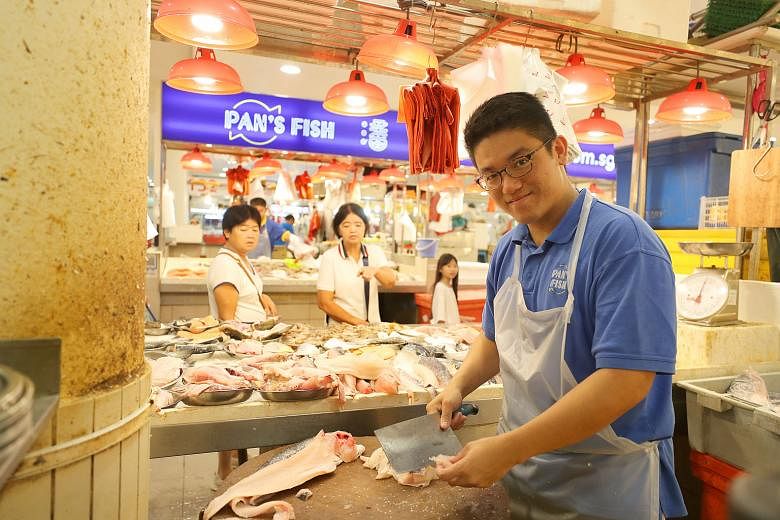Given the difficulty that shoppers have had with booking delivery slots from big supermarket chains such as FairPrice and Giant, smaller online grocery providers are picking up the slack.
A check with eight of these lesser-known grocery delivery platforms found that business has boomed in recent weeks as shoppers search for alternative options in stocking up on their daily essentials.
People have turned to online grocery shopping as they have to remain at home to help curb the spread of the coronavirus.
Freelance writer Janet Fu, 39, started googling for other grocery delivery platforms after failing to get a slot at FairPrice Online for three weeks.
"I hadn't heard of these other places before but it's good to have backup options, even though they may not have as wide a variety of products," said Ms Fu, who has purchased rice and cooking oil from Hao Essential Goods Store online.
The sudden surge in demand for some of these smaller players has become so overwhelming that some have had to close off orders entirely for the time being.
MarketFresh, for example, which hawks wet-market groceries from Tiong Bahru Market, is "fully capped" for deliveries until the end of the month, said its founder Khor Chin Puang. But the platform will open up delivery slots for those who "really require our service", he said, without elaborating.
OpenTaste, which sources fresh produce and meats from over 200 farms around the world, has had to stop accepting new members since the start of the month. The online grocer, which serves 50,000 members in Singapore, said that business has spiked by more than 50 per cent in recent weeks.
Supermarket and minimart chain Hao Mart, which runs 45 physical outlets islandwide, launched the Hao Essential Goods Store on its website just a week ago to cater to demand. The online platform stocks a curated list of "essential" goods, such as instant noodles, toilet rolls and bottled water.
Changi Recommends, a subsidiary of Changi Airport Group, also launched grocery delivery service Get It at the beginning of this month - a departure from its usual offerings of travel-related services such as Wi-Fi router rentals and tickets for attractions.
A spokesman for Changi Recommends told The Straits Times: "With travel restrictions in place, it is only natural for the company to adjust our offerings to suit the current climate and stay relevant."
Get It currently lists over 8,000 items across various categories on its platform and has seen a day-on-day increase in orders since its launch, said the spokesman.
Online grocer Maxzi, which is run by gourmet food provider Indoguna and is better known for stocking fine food items such as caviar and premium cheeses, added more daily essentials and local perishables to its inventory this month.
The company's retail sales director Joelle Goh said: "We know that customers have a need for these things, so we'll try our best to source the items and provide them. Just this week, we started offering salad boxes because customers gave us feedback that they wanted it."
She added that the grocer has seen a more than 200 per cent increase in sales this month, and that the number continues to "grow tremendously" each day. But the company, which has its own fleet of 19 trucks, is able to handle the surge in demand for deliveries, partly because the frequency of supplies to hotel and restaurant clients has fallen.
Grocery shopping app WeBuy can accommodate the high demand because product deliveries are never sent to every single household, but only to designated "group leaders", who will then distribute the goods to their neighbours.
Mr Vincent Xue, founder of the app, said: "If we get 1,000 orders for ice cream, it's not practical to send them to 1,000 houses. So we send them to 400 group leaders, and this kind of small distribution model is much more manageable."
Group leaders on the app are usually housewives who use their own flats as temporary storage space for groceries. Customers living near them - calculated by distance on the app - can pick up these items at their flats, or have deliveries arranged using private-hire drivers.
Madam Shirli Koh, 38, is a stay-at-home mother of two and a group leader in the Jurong neighbourhood. She said: "I really enjoy doing this because it's a good way to know who lives around you. During this Covid-19 situation, it's nice to have a sense of community."












